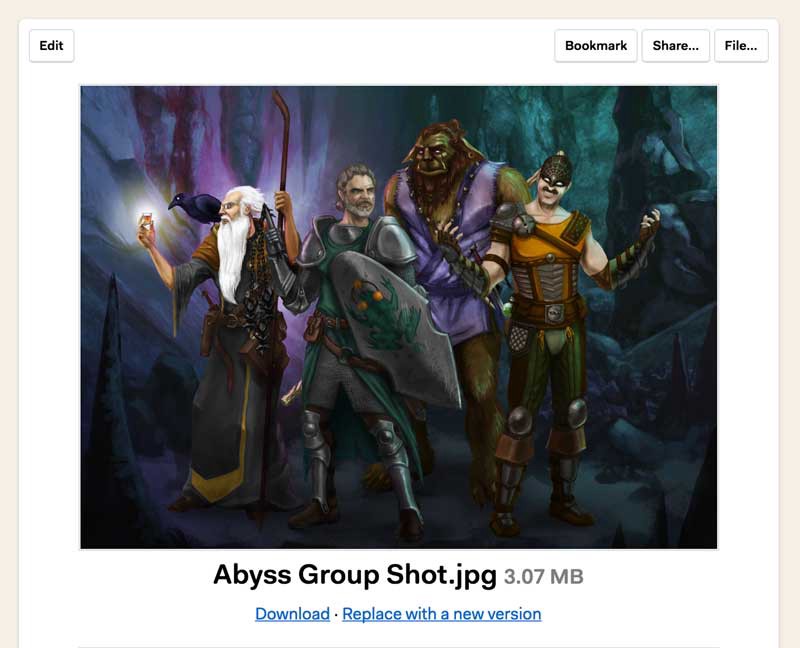
Being a Dungeon Master (DM) is kind of like being a Project Manager (PM). I have no idea if that’s actually true. I just liked the coincidentally close acronyms. In truth, I’ve never been a Project Manager. However, for the last couple years I have been a Dungeon Master and recently I’ve been using project management software to help organize the game. What follows are some examples of how I’ve bent and bastardized Basecamp to run a Dungeons & Dragons campaign for a group of four buddies. Warning: if you’re currently playing the Out of the Abyss adventure or plan to, maybe don’t pay too much attention to some of the screenshots. I don’t want to spoil anything. For those who have no idea what I’m talking about, come jump aboard the nerd bus, grab your d20 (that’s a dice with 20 sides), and follow me into a land of Magic and Message Boards.
Dungeon Mastery
In Dungeons & Dragons, a Dungeon Master is the game’s story-teller, organizer, judge, jury, and executioner. It’s the DM’s job to narrate the adventure, describe what the players’ characters (PCs) experience, and take on the roles of any non-player characters (NPCs). What they don’t tell you is that it also involves a dragon’s hoard worth of homework. We only play for about 3 hours once a week and to make sure all that time is spent actually playing I, as the DM, have to do a lot of preparation. When you’re at low hit points (HP), exhausted, out of spells and facing down a demon lord hellbent on destroying you and your party, the last thing you want is your DM to spend the next 10 minutes recapping what you did last week, looking up the rules for invisibility potions you forgot you had, or recalculating your experience points. Here’s where Basecamp comes in.
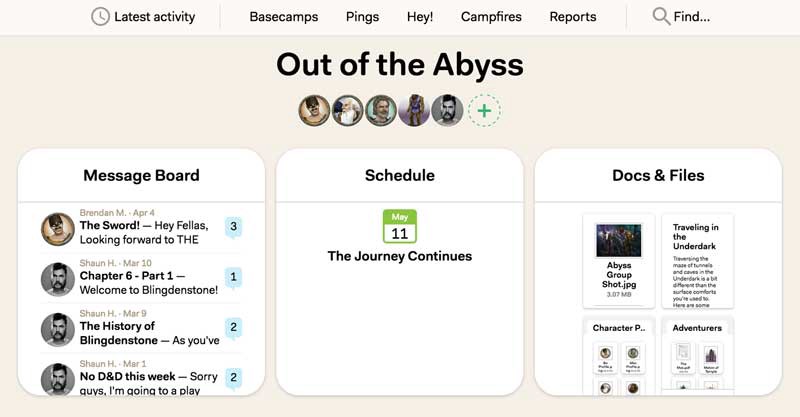
To make sure everyone is on the same page, caught up, and completely ready by the time we meet every week, I keep a lot of important stuff in Basecamp. Right now I’m only using 3 of the 6 tools in Basecamp: the Message Board, Schedule, and Docs & Files. Things like real-time chat, recurring questions, and to-dos just aren’t that helpful for this kind of thing. Maybe if I were running the game remotely, some of these things would come in handy, but since we meet every week, a lot of that stuff gets done in person.
Messages
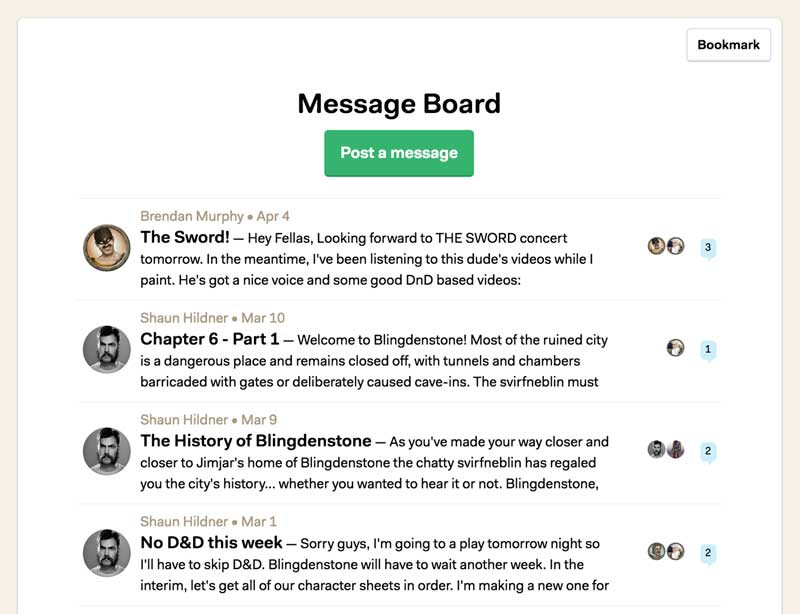
I use the message board to post recaps of each week’s adventure, any real-world news like if a meeting is cancelled, and some story exposition stuff that might come in handy.
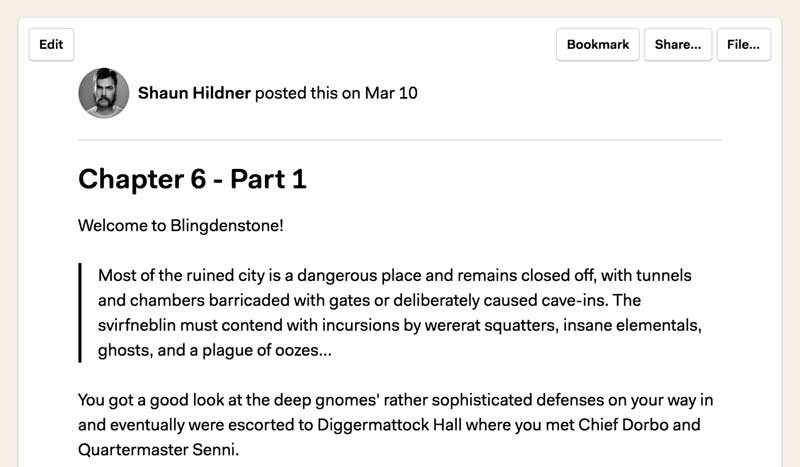
I’m not always the most confident in my storytelling on the night, so these recaps make sure each player is on the same page after every session. A lot of time can be spent every week reminding characters where they are and what they’re doing. This relieves some of that and leaves more time for fighting bugbears.
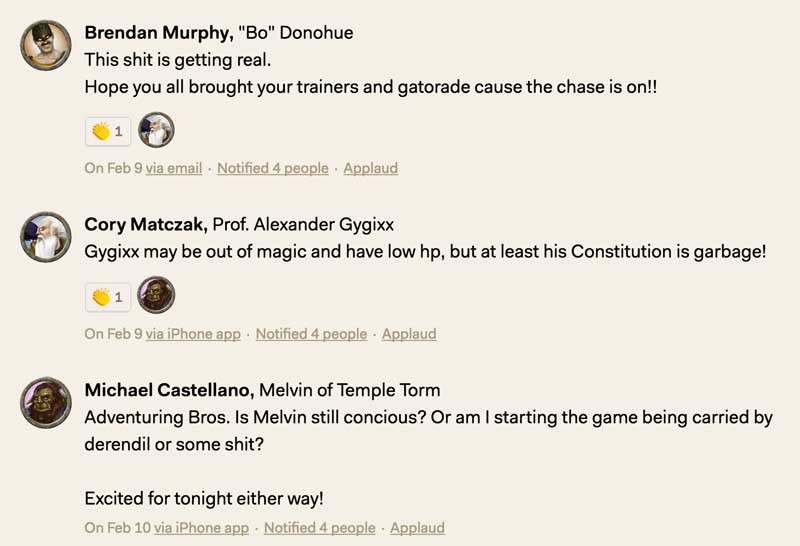
*Yeah, we use character sketches as Basecamp avatars and character names as titles. It’s a nice feeling when a level 5 wizard applauds a message you’ve written.
Schedule
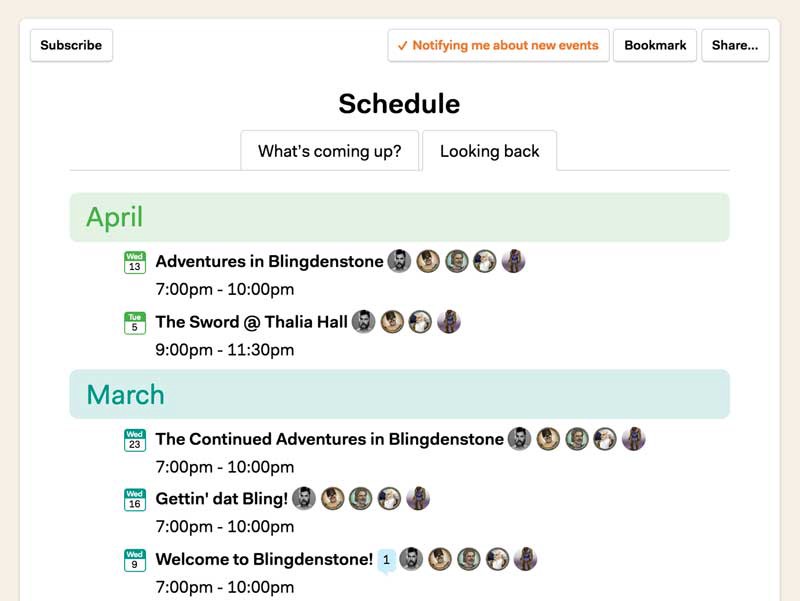
Using the schedule for D&D is pretty obvious. I’m sure the players can remember that we meet every Wednesday, but it’s still nice to get a notification and it gives me a chance to remind everyone where their characters are in the fictional world. As you can see, for the last few weeks they’ve been bumming around the deep gnome settlement of Blingdenstone.
Docs & Files
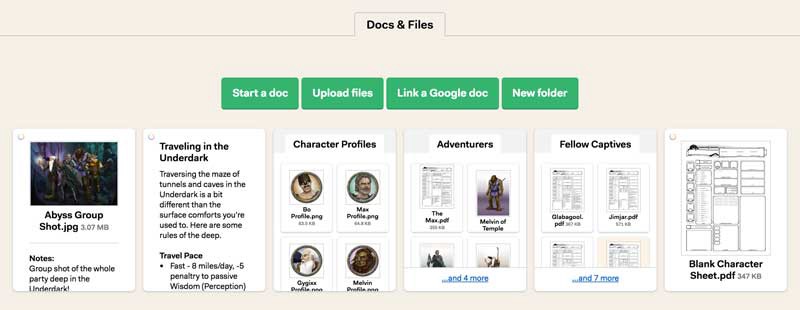
Here’s where I think Basecamp really shines for D&D. We store all the character information as well as any other permanent stuff in Docs & Files.
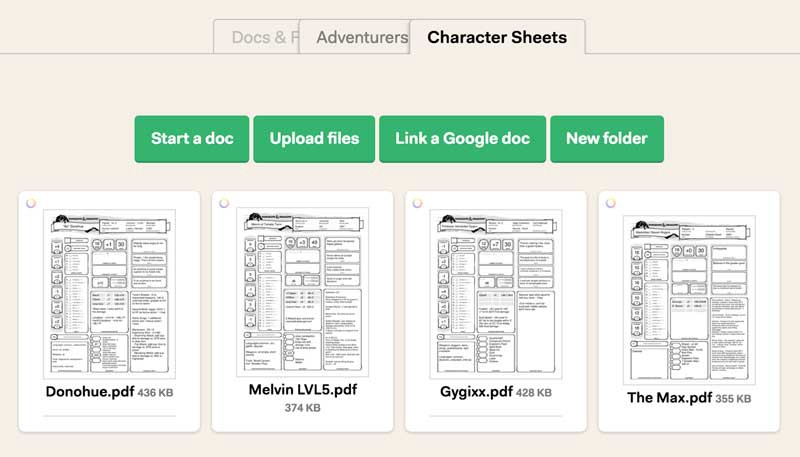
Every PC has a character sheet where they keep track of all their stats, HP, spells, and equipment. This document is constantly being updated with new loot, new spells, damage to armor when a sentient ooze corrodes your plate mail, etc. So after every meeting each player uploads a new version of their character sheet and I can look them over. You know, make sure they didn’t write down an extra invisibility potion they shouldn’t have.
This adventure also has a whole bunch of NPCs that the players interact and travel with. I store all their stats in Docs & Files too. Color labels are used to mark which NPCs are still alive and with the party (white), probably alive, but no longer with the party (orange), or sadly met a gruesome end at the hands of a troglodyte or something (red).
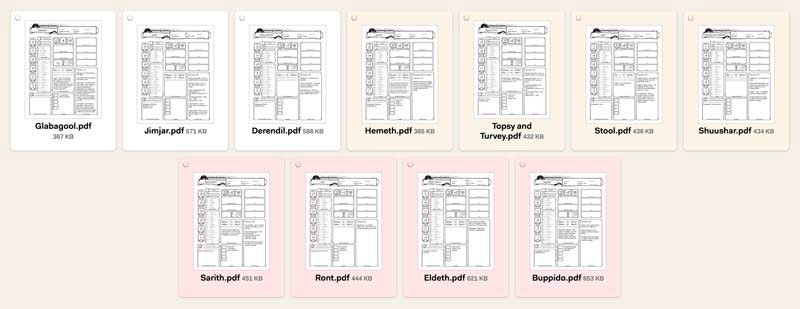
The system isn’t perfect, but to be fair, I don’t think Basecamp was built to lead a bunch of nerds through the Underdark. A couple final things I want to mention here: There’s some debate on whether a DM should recap the story or leave it up to the players’ own memories to figure out where they are and what they were doing. This is working for me because our sessions are so short I want to get as much adventuring in as possible, but I can see how leaving it up to the players’ interpretation of events has merit as well. It’s also been suggested that I use To-Do lists to mark quest objectives and players can check them off as they’re completed. I haven’t done this for a couple reasons. First, there’s kind of a line between what the players are doing and what their characters are doing. Basecamp is something we as humans use to organize the game, but to-do lists for quests, cross into something half-elf warlocks would use in the adventure. If a player wants to keep track of quests using to-do lists, great. Write it down like your character would. But, so far there is no Basecamp in the fantasy world so I don’t allow players to use it in that way.
That’s about it! Thanks for reading. I’d love to hear what y’all use to organize D&D games or if you’re using Basecamp or other PM tools for nonsense like this.

